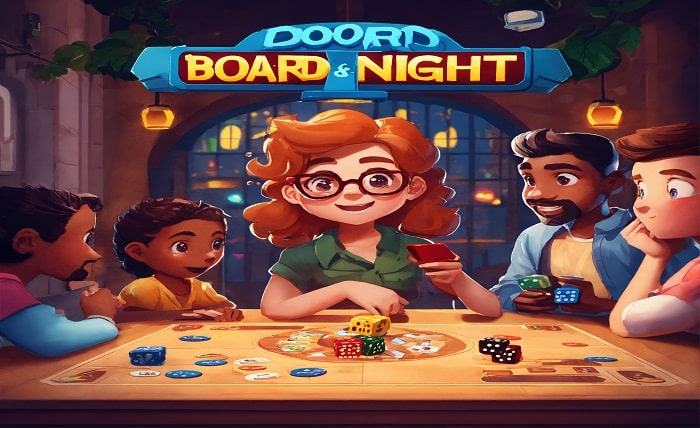How to Host a Game in 99math: A Step-by-Step Guide

If you’re looking to make math fun, interactive, and engaging, 99math is an excellent platform to host games for students, friends, or colleagues. Whether you’re a teacher, a tutor, or simply someone who wants to host a game, 99math offers an easy and exciting way to bring people together while enhancing their mathematical skills. This article will guide you through the process of hosting a game in 99math and provide useful tips to maximize the experience.
What is 99math?
99math is an online platform designed to make learning math fun. It allows users to play math games in a competitive yet friendly environment. The platform provides a variety of math problems, including addition, subtraction, multiplication, division, and even more advanced topics. It can be used for educational purposes, team-building activities, or even casual gaming with friends. Hosting a game in 99math involves creating a room, inviting players, and selecting the appropriate settings to ensure the game runs smoothly.
How to Host a Game in 99math: The Basics
Before you start hosting a game in 99math, you need to have an account. The registration process is straightforward. Follow these steps:
- Sign Up: Go to the 99math website and create an account if you don’t already have one. You can sign up using your email address or connect via Google or Microsoft.
- Log In: Once you’ve signed up, log in to your account using your credentials.
- Create a Game: After logging in, you’ll find the “Create Game” option on the dashboard. Click on it to start setting up your game.
This simple process is all you need to begin hosting a game. With your account ready, you can dive into the customization options that make 99math so unique.
Choosing the Right Game Settings
When hosting a game in 99math, it’s important to configure the game settings according to your audience’s needs. You can select the difficulty level of the math problems, the duration of each round, and even the theme of the questions. Here’s how:
- Choose a Difficulty Level: You can select from different difficulty levels such as beginner, intermediate, and advanced. Choose the level based on the participants’ age and skill level.
- Set the Time Per Round: You can customize the time allowed for each round. The typical duration is around 30 seconds per question, but you can adjust this according to how fast or slow the participants are.
- Pick the Topics: You can pick specific math topics like addition, subtraction, multiplication, or more advanced topics like fractions, decimals, or algebra.
- Add Fun Themes: 99math also offers themed games to make the experience more entertaining. Choose a theme that fits your group, such as space or animals, to make the learning process fun.
Inviting Players to Join the Game
Once you’ve set up your game, it’s time to invite participants. Here’s how to do it:
- Generate a Game Code: After selecting the game settings, you’ll be provided with a unique game code. This code will allow participants to join your game.
- Share the Game Code: Send the game code to your friends, students, or colleagues. They can enter the code on the 99math website to join your game.
- Monitor Players: You can see who has joined the game and track their progress. This helps you manage the session and ensure that everyone is participating.
You can invite an unlimited number of players, depending on the platform’s limitations and your subscription plan.
Managing the Game Session
As the host, you’ll have the ability to control the pace and flow of the game. Here’s what you can do during the game:
- Start the Game: Once everyone has joined and you’re ready, click the “Start Game” button to begin the session.
- Pause the Game: If you need to take a break or resolve an issue, you can pause the game at any time.
- Monitor Progress: Track how well players are doing by watching the leaderboard. You’ll be able to see who is leading and how much time is left in each round.
- Adjust Settings on the Fly: If necessary, you can adjust the game settings during the session, including the time per question or the difficulty.
These tools ensure that you remain in control of the game and can adjust it based on the group’s needs.
Tips for a Successful Game in 99math
Hosting a game in 99math is simple, but with the right strategies, you can make the experience even more enjoyable. Here are some tips for success:
- Know Your Audience: Tailor the difficulty level and topics based on the age and skills of the participants. Younger children may enjoy basic addition and subtraction, while older students or adults may prefer more challenging problems.
- Encourage Friendly Competition: To make the game more exciting, encourage players to compete for a top spot on the leaderboard. Healthy competition can increase engagement and make the game more fun.
- Keep the Energy Up: Take breaks between rounds to allow participants to recharge. This can help maintain the focus and enthusiasm of the group.
- Incorporate Team Play: If you’re hosting a larger group, consider dividing them into teams to foster collaboration and teamwork. Team-based games are a great way to build community and improve problem-solving skills.
- Reward Participants: At the end of the game, reward participants with fun prizes or recognition. This can motivate players to engage in future games and improve their math skills.
These tips will help create a positive and engaging game environment for all players.
How to Analyze the Game Results
After hosting a game in 99math, you’ll likely want to analyze the results to understand how participants performed. The platform provides detailed reports that show how each player performed on different questions. Here’s how to use this feature:
- View the Leaderboard: After the game ends, check the leaderboard to see who came out on top. You can filter results by individual performance or overall team performance.
- Check Accuracy and Speed: 99math provides data on how quickly players answered each question and how many answers were correct. This helps you understand each player’s strengths and weaknesses.
- Provide Feedback: Based on the results, provide feedback to the players. You can highlight areas where they excelled or suggest ways to improve in future games.
By analyzing the results, you can identify areas for improvement and create more targeted challenges in future sessions.
Conclusion
Hosting a game in 99math is an enjoyable and effective way to engage participants in mathematical learning. The platform offers a variety of customization options to ensure that the game meets your group’s needs, whether you’re hosting a casual game or a more serious educational session. By following the steps outlined in this guide, you can set up and host a successful game that is both fun and educational.
FAQs
1. Do I need to create an account to host a game in 99math?
Yes, you need to create a free account on the 99math platform to host a game. This allows you to set up a game room and track player progress.
2. Can I host a game with multiple players at once?
Yes, 99math allows you to invite multiple players to join the same game using a unique game code. The platform supports large groups, so you can host games with many participants.
3. Can I customize the game questions in 99math?
Yes, you can select different math topics and difficulty levels when creating a game. This allows you to tailor the questions to the participants’ age and skill level.
4. How can I monitor players during the game?
As a host, you can monitor the game by checking the leaderboard, tracking player progress, and adjusting settings in real time.
5. What happens after the game ends?
After the game, 99math provides detailed reports on player performance, including accuracy and speed. You can use this data to give feedback and plan future games.




